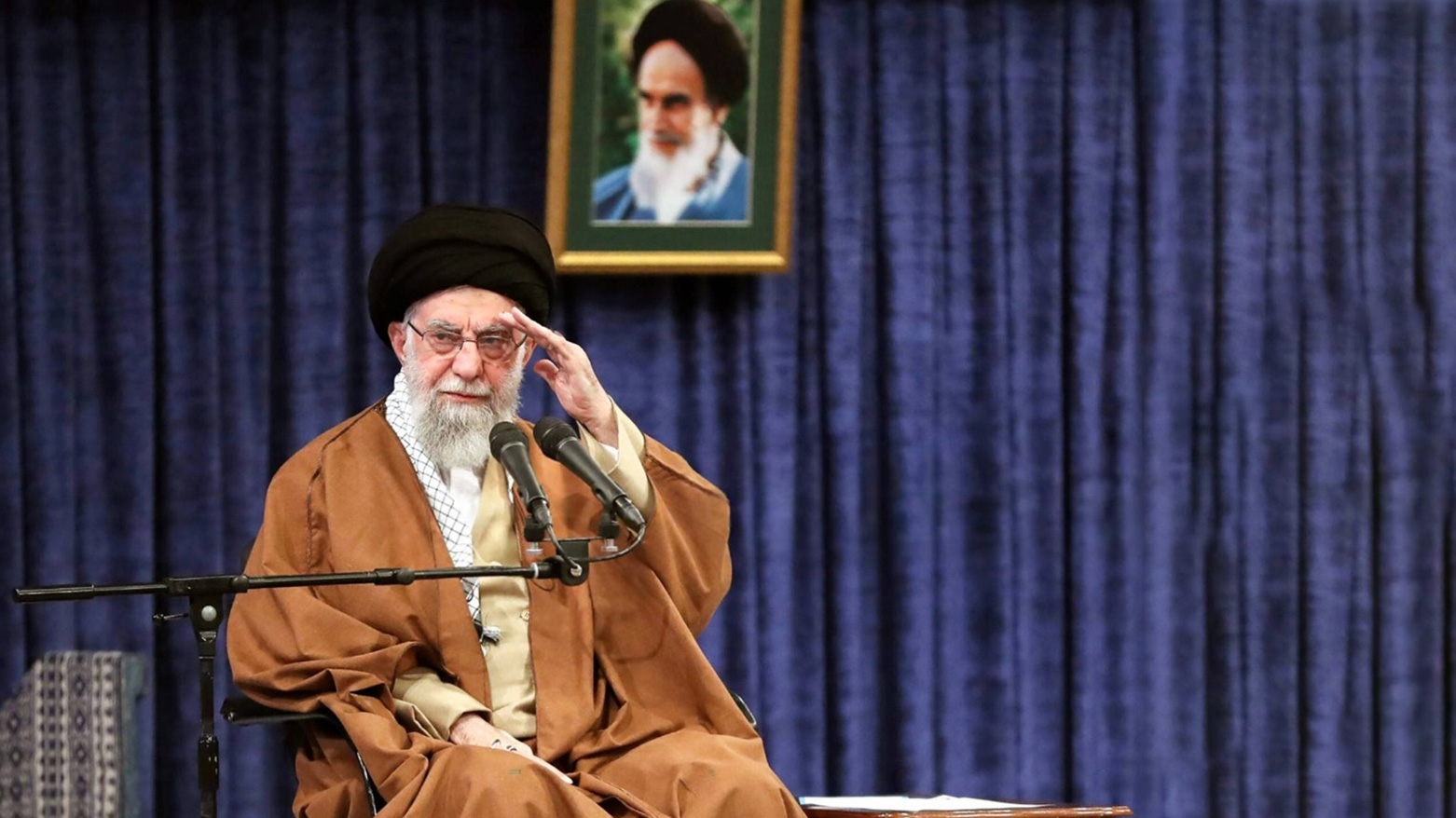Iran’s Khamenei Warns ‘Threats Would Yield No Success’
The Iranian Supreme Leader also lashed out at Western nations for their characterization of regional resistance groups as Iranian proxies, dismissing such labels as a grave misjudgment.

ERBIL (Kurdistan 24) – In a strongly worded speech, Iran’s Supreme Leader Ayatollah Ali Khamenei issued stern warnings to the United States and Western powers, declaring that threats against Iran would yield no success and that any hostile actions against the Islamic Republic would be met with decisive retaliation.
The speech, delivered on Friday, at the Imam Khomeini Hussainiya in Tehran, was attended by various segments of the Iranian public and government officials. The event, marking the new year and Nowruz in Iran, is often used by the country’s leadership to outline strategic policies and reiterate its ideological positions.
Khamenei, in a forceful tone, declared that American attempts to pressure Iran through threats and sanctions would never succeed. He underscored that any direct aggression would provoke a “severe slap” in response.
The Iranian Supreme Leader also lashed out at Western nations for their characterization of regional resistance groups as Iranian proxies, dismissing such labels as a grave misjudgment.
“The Americans and Europeans must understand that if they commit any hostile act against the Iranian nation, they will receive a severe slap,” Khamenei stated emphatically. He condemned the West’s stance toward Iran-aligned resistance groups in the Middle East, particularly Yemen’s Houthis, insisting that their actions are rooted in their own historical and national motivations rather than Iranian directives.
“What does ‘proxy’ mean? The Yemeni people are motivated, and the resistance centers in the region are determined. Iran does not need proxies,” he asserted.
Khamenei further emphasized that Iran’s position on Palestine and regional resistance movements remains unwavering. He accused Western governments of deliberately ignoring widespread global opposition to Israel’s actions in Gaza, highlighting protests in Europe and the United States as evidence of shifting public sentiment.
“The cruelty of the ruthless Zionist regime has pained the hearts of many non-Muslim nations,” he said, adding that demonstrations in Western capitals prove that governments are out of touch with their citizens.
Mocking the West’s claims of defending free speech and human rights, Khamenei pointed to reported crackdowns on pro-Palestinian activism in American universities, where financial repercussions have been threatened against institutions permitting such protests.
“So much for the free circulation of information! So much for liberalism! Freedom! Human rights! This is how they respond!” he remarked sarcastically.
On the broader issue of Iran’s stance against Israel, Khamenei reiterated the Islamic Republic’s long-standing policy of support for Palestinian and Lebanese factions engaged in conflict with Israel.
“We stand steadfast against these hostilities, and we clearly state our position. We support the fighters of Palestine and Lebanon who defend their lands, their Palestine, and their Gaza,” he declared.
Despite the increasingly hostile rhetoric, Khamenei insisted that Iran does not initiate conflicts but will respond forcefully to any aggression. “We have never been the initiators of conflict, but if anyone commits an act of aggression and starts a war, they should know that they will face severe slaps,” he warned.
The speech comes at a time of heightened tensions between Iran and Western powers, particularly over Tehran’s support for regional armed groups and its continued defiance of U.S. sanctions. With conflicts in Gaza and Lebanon intensifying, Khamenei’s message signals that Iran remains committed to backing its allies while standing firm against external pressure.
As Iran ushers in the new year, Khamenei’s Nowruz address sets the tone for the country's foreign policy trajectory in the coming months, reinforcing Tehran’s confrontational stance while reaffirming its ideological alliances across the Middle East.